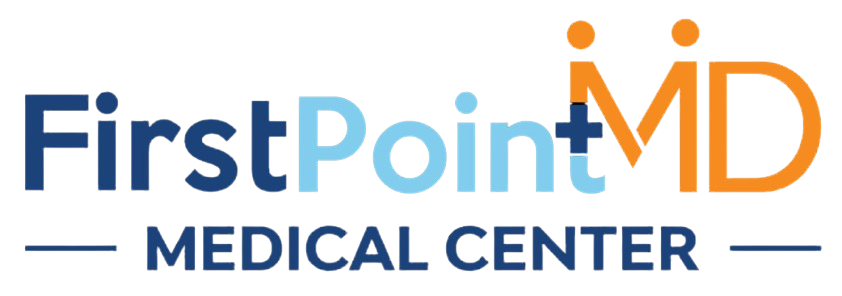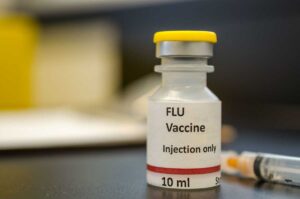15 Expert Insights on Vaccines for Primary Care and Flu Prevention: FirstpointMD's Comprehensive Guide

As a healthcare provider, you know vaccines are essential for safeguarding public health. But do you truly understand the depth of their impact? FirstpointMD‘s comprehensive guide delves into 15 expert insights that’ll transform how you approach vaccination strategies in primary care. From boosting immune systems to dispelling common myths, this guide equips you with the knowledge to make informed decisions and ensure your patients receive the protection they deserve. Discover the data-driven strategies that’ll empower you to deliver exceptional care and elevate flu prevention efforts within your community.
Vaccines: Safeguarding Public Health
Vaccines are the cornerstone of public health, serving as a powerful shield against a myriad of infectious diseases. By stimulating the immune system, vaccines train our bodies to recognize and respond effectively to harmful pathogens, significantly reducing the risk of contracting and spreading life-threatening illnesses.
From childhood immunizations to adult booster shots, vaccines have played a pivotal role in eradicating diseases, such as smallpox, and dramatically decreasing the incidence of once-common afflictions like polio and measles.
Robust vaccination coverage is essential for herd immunity, where a large portion of the population is immune, thereby indirectly protecting those who can’t be vaccinated, such as newborns, the elderly, and the immunocompromised.
Public health experts emphasize the profound impact of vaccines in preventing outbreaks, saving millions of lives globally each year, and mitigating the burden on healthcare systems. As trusted healthcare providers, it’s our duty to educate and encourage our patients to prioritize routine vaccinations as a cornerstone of comprehensive primary care.
Strengthening Immune System With Vaccines
Bolstering your immune system is one of the primary benefits of staying up-to-date with recommended vaccinations. Vaccines work by exposing your immune system to weakened or inactivated forms of pathogens, triggering the production of antibodies that can recognize and fight off future infections. This process strengthens your body’s natural defenses, making you less susceptible to severe illness and complications.
Research has consistently demonstrated the immune-boosting effects of vaccines. Studies show that individuals who receive recommended vaccinations, such as the annual flu shot, have a lower risk of influenza-related hospitalizations and mortality. Additionally, certain vaccines, like the pneumococcal vaccine, can enhance protection against opportunistic infections that often target those with weakened immune systems.
Flu Vaccines: Crucial Seasonal Protection
Amid the cyclical nature of flu seasons, the criticality of flu vaccines can’t be overstated. These annual shots are the most effective means of preventing influenza and its potentially severe complications. Numerous studies have demonstrated that flu vaccines can reduce the risk of illness by 40-60% when the circulating viruses match the vaccine strains.
Furthermore, they’ve been shown to lower the risk of flu-related hospitalization by 40-60% among the overall population and up to 85% among the elderly. Vaccination is particularly crucial for high-risk individuals, including the elderly, young children, pregnant women, and those with chronic medical conditions. By stimulating the body’s immune response, flu vaccines equip the immune system to recognize and effectively combat influenza viruses.
With flu season fast approaching, ensuring timely vaccination is a proactive step everyone should take to safeguard their health and that of their loved ones.
Vaccine Efficacy: Understanding the Data
When it comes to vaccine efficacy, the data is clear. Numerous studies have consistently demonstrated the effectiveness of vaccines in preventing infection and reducing the severity of illness. For example, the flu vaccine has been shown to reduce the risk of flu illness by 40-60% when the vaccine is well-matched to circulating strains. Similarly, the COVID-19 vaccines have been found to be over 90% effective in preventing severe disease, hospitalization, and death.
Beyond preventing illness, vaccines also play a crucial role in reducing transmission. By lowering the overall incidence of disease, vaccines help limit the spread of pathogens within communities. This is particularly important for vulnerable populations, such as the elderly and immunocompromised, who may not mount as robust an immune response to vaccines.
The data on vaccine efficacy is clear and compelling. Vaccines are a safe and effective way to protect individual and public health, and they should be a top priority for everyone. Healthcare providers must continue to educate patients on the benefits of vaccination and make them widely accessible.
Dispelling Vaccine Myths and Misconceptions
Despite the overwhelming scientific evidence supporting the safety and efficacy of vaccines, persistent myths and misconceptions continue to circulate. These unfounded beliefs can undermine public trust and lead to suboptimal vaccination rates, putting individual and community health at risk.
At FirstpointMD, we’re committed to dispelling these myths and empowering our patients with the facts. One prevalent misconception is that vaccines cause autism. This claim has been thoroughly debunked by numerous large-scale studies, which have consistently found no link between vaccines and autism. Similarly, the myth that vaccines contain harmful ingredients like mercury has been dispelled, as modern vaccines are carefully formulated to be safe and effective.
Furthermore, the notion that natural immunity is superior to vaccine-induced immunity is a dangerous oversimplification. Vaccines stimulate the immune system in a controlled manner, providing protection without the risks associated with natural infection. By addressing these and other common vaccine myths, we can help ensure that our patients make informed decisions and prioritize vaccination as a crucial component of their healthcare.
Vaccination Strategies for Primary Care
As a primary care provider, you play a pivotal role in ensuring your patients are up-to-date with their recommended vaccinations. Vaccination strategies in primary care should focus on implementing evidence-based protocols to maximize immunization rates. This includes conducting regular vaccine screenings, delivering strong vaccine recommendations, and addressing patient concerns effectively.
Proactive vaccine reminders and recalls can help boost adherence, while standing orders empower your nursing staff to administer vaccines without a physician order. Implementing provider and patient education initiatives is also crucial, as it equips both parties with the knowledge to make informed decisions. Moreover, maintaining a robust vaccine inventory and optimizing storage and handling practices are essential for vaccine accessibility and efficacy.
Importance of Childhood Immunizations
Childhood immunizations are a cornerstone of preventive healthcare, safeguarding young lives from devastating infectious diseases. As a trusted healthcare provider, FirstpointMD strongly emphasizes the importance of adhering to the recommended childhood vaccination schedule.
Vaccines prevent life-threatening illnesses: Diseases like polio, measles, and pertussis can have severe, even fatal, consequences, but vaccines have dramatically reduced their incidence, protecting children and communities.
Vaccines build a strong immune system: By exposing the body to weakened or inactivated pathogens, vaccines stimulate the immune system to develop antibodies, enhancing its ability to fight off future infections.
Vaccines safeguard vulnerable populations: Herd immunity, achieved through high vaccination rates, protects those who can’t be vaccinated, such as infants, immunocompromised individuals, and the elderly.
Vaccines save lives and healthcare costs: Immunization programs have prevented millions of hospitalizations and deaths, while also reducing the financial burden on the healthcare system.
Vaccines are rigorously tested for safety: Extensive clinical trials and ongoing monitoring ensure vaccines are safe and effective before being approved for public use.
Vaccine Accessibility and Equity
Ensuring equitable access to vaccines is a critical component of promoting public health and safeguarding vulnerable populations. At FirstpointMD, we recognize that barriers to vaccine accessibility can exacerbate existing health disparities, so we’re committed to addressing this issue head-on.
Evidence suggests that lower-income communities and racial/ethnic minorities often face significant hurdles in obtaining vaccines, including lack of transportation, language barriers, and financial constraints. To mitigate these challenges, we advocate for initiatives that expand vaccine distribution sites, provide free or low-cost vaccination programs, and offer multilingual educational resources. By prioritizing equity, we can ensure that all individuals, regardless of their socioeconomic status or background, have the opportunity to protect themselves and their loved ones through vaccination.
Additionally, we collaborate with local organizations and public health authorities to identify and address specific community needs, ensuring that our vaccine delivery strategies are tailored to the unique circumstances of the populations we serve. Together, we can build a more inclusive and resilient healthcare system that safeguards the health and well-being of all.
Conclusion
Vaccines are the cornerstone of public health, safeguarding individuals and communities. They strengthen the immune system, providing crucial protection against seasonal flu and other vaccine-preventable diseases. While myths persist, the data clearly demonstrates vaccine efficacy. Healthcare providers play a vital role in vaccine education and ensuring equitable access, particularly for childhood immunizations. Prioritizing vaccination strategies is essential for maintaining population health and resilience.






